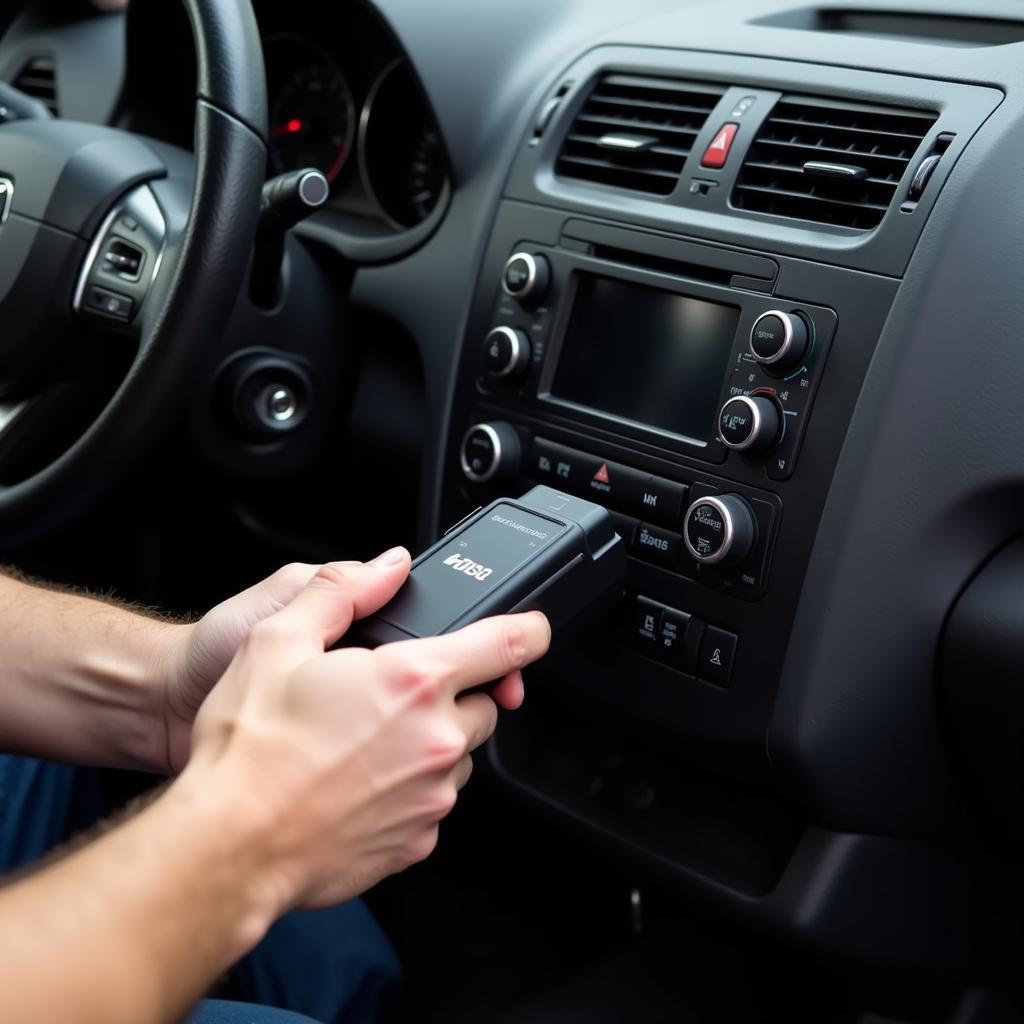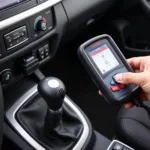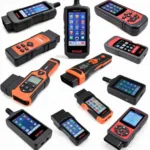Knowing if your car is OBD2 compliant is essential for troubleshooting engine issues, improving fuel efficiency, and even just understanding your vehicle better. But navigating the world of OBD2 can feel like deciphering a secret code. Don’t worry, we’re here to break it down for you.
This article will guide you through everything you need to know about OBD2 compliance, helping you determine if your vehicle fits the bill.
Understanding OBD2 and Its Importance
OBD2, short for On-Board Diagnostics, generation two, is a standardized system that allows external electronics to interface with your car’s computer. Think of it as the universal language your car uses to talk to mechanics and diagnostic tools, like OBD2 scanners.
But why is this important?
Imagine this: your check engine light pops on. Instead of a guessing game with your mechanic, an OBD2 scanner can instantly pinpoint the issue, saving you time, money, and unnecessary repairs.
Which Cars are OBD2 Compliant?
The golden rule is this:
- In the United States: Gas cars from 1996 onwards and diesel cars from 1997 onwards are OBD2 compliant.
- In Europe: Gas cars from 2001 onwards and diesel cars from 2004 onwards are OBD2 compliant.
However, it’s not always black and white. Some car manufacturers adopted OBD2 earlier than mandated. On the flip side, certain vehicle models might have slight variations.
Don’t worry! There are several ways to confirm your car’s OBD2 compliance:
- Check Your Owner’s Manual: Your owner’s manual is the first place to look. It often includes information about your car’s emissions system and OBD compliance.
- Look for the OBD2 Port: The OBD2 port is usually located under the dashboard on the driver’s side. It’s a trapezoidal 16-pin connector.
- Consult Online Resources: Websites like OBDFree offer comprehensive databases and resources to help you determine your car’s OBD2 compliance. You can find specific information based on your car’s make, model, and year.
- Use an OBD2 Scanner: Connecting a basic OBD2 scanner can quickly confirm if your vehicle is compliant.
What if My Car Isn’t OBD2 Compliant?
If your car predates the OBD2 mandate, don’t fret! While you won’t have the standardized diagnostics of OBD2, your car still has an onboard diagnostic system, though it might be less sophisticated.
In this case, you might need specialized equipment or a skilled mechanic familiar with older diagnostic systems.
Why You Should Care About OBD2 Compliance
Even if you’re not a car enthusiast, understanding OBD2 compliance can be beneficial:
- Buying a Used Car: Knowing if a car is OBD2 compliant can help you make informed decisions when buying a used vehicle.
- DIY Repairs: With a basic understanding of OBD2 and a reliable scanner, you can diagnose and potentially fix minor car problems yourself.
- Improved Fuel Efficiency: Monitoring your car’s emissions through OBD2 can help optimize engine performance and potentially improve fuel efficiency.
“OBD2 isn’t just for mechanics anymore,” says John Smith, Senior Automotive Engineer at [Company Name]. “It’s become a powerful tool for car owners, empowering them with valuable insights into their vehicles.”
Conclusion
Knowing if your car is OBD2 compliant is essential for troubleshooting, maintenance, and even making informed purchasing decisions. By understanding the basics of OBD2 and using the resources available, you can unlock a deeper understanding of your vehicle and keep it running smoothly for miles to come.
Ready to explore the world of OBD2 scanners? Check out our comprehensive guide on what obd2 scanner to buy to find the perfect one for your needs.
FAQs
1. Are all cars after 2000 OBD2 compliant?
While most cars manufactured after 2000 are OBD2 compliant, it’s always best to confirm using the methods outlined above.
2. Where can I find my car’s OBD2 port?
The OBD2 port is typically located under the dashboard on the driver’s side.
3. Can I use any OBD2 scanner on my car?
While most OBD2 scanners are universal, certain car models might require specialized scanners.
4. Is my car OBD2 compliant if it has an OBD2 port?
The presence of an OBD2 port is a good indicator, but it’s not a guarantee. Always verify compliance using other methods.
5. What should I do if my car isn’t OBD2 compliant?
Don’t worry! Your car still has a diagnostic system, though it might be less sophisticated. Consult a qualified mechanic experienced with older systems.


